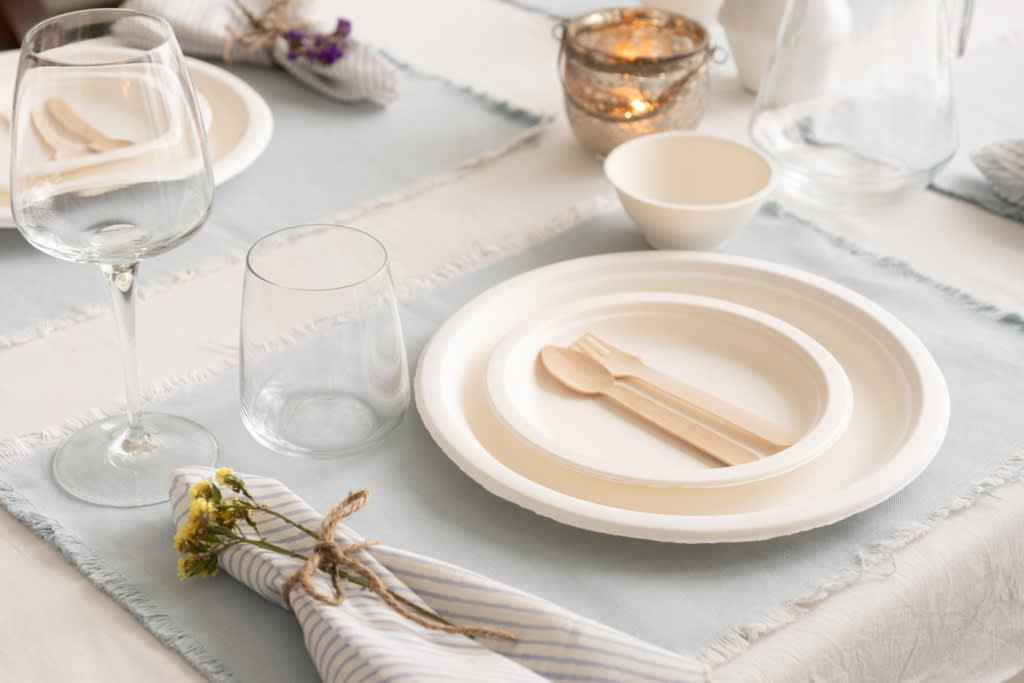How Pulp Molding Technology Enables the Production of Biodegradable Tableware
Transforming Dining: The Rise of Biodegradable Tableware

In today's era of heightened environmental awareness, the pursuit of sustainable alternatives to traditional plastic products has become imperative. With the rising concerns over plastic pollution and the increasing number of plastic bans being implemented worldwide, there is a growing demand for eco-friendly alternatives. One such alternative that has gained significant traction is biodegradable tableware produced using pulp molding technology.
Understanding Biodegradable Tableware
Biodegradable tableware refers to disposable utensils, plates, cups, and other dining items that are made from organic materials and are capable of decomposing naturally over time. Unlike traditional plastic tableware, which can persist in the environment for hundreds of years, biodegradable tableware breaks down into natural components, leaving behind minimal to no harmful residue.
The Plastic Ban Movement
The global movement to ban single-use plastics has gained momentum in recent years as governments, businesses, and consumers alike recognize the detrimental impact of plastic waste on the environment. Plastic bans target items such as straws, bags, and utensils, prompting the need for alternative materials that are both sustainable and functional.
Introducing Bagasse
Bagasse, a byproduct of sugarcane processing, has emerged as a promising raw material for the production of biodegradable tableware. Bagasse is abundant, renewable, and biodegradable, making it an ideal alternative to conventional plastics. By utilizing bagasse as a feedstock, manufacturers can reduce reliance on finite resources while simultaneously addressing the issue of agricultural waste.
Harnessing Pulp Molding Technology
Pulp molding technology, also known as pulp thermoforming or molded pulp processing, plays a pivotal role in the production of biodegradable tableware. This innovative manufacturing process involves the transformation of pulp derived from natural fibers, such as bagasse, into various molded shapes using heat and pressure.
The Process of Pulp Molding
The production process begins with the collection of raw materials, primarily bagasse, from sugarcane mills or other sources. The bagasse is then pulped and mixed with water to form a slurry. Next, the slurry is poured into molds of desired shapes and sizes. The molds are then subjected to heat and pressure, causing the water to evaporate and the fibers to bond together, resulting in sturdy and durable tableware products.
Advantages of Pulp Molding Technology
1. Sustainability
Pulp molding technology offers a sustainable solution to the growing demand for eco-friendly tableware. By utilizing renewable and biodegradable materials such as bagasse, it reduces reliance on fossil fuels and minimizes environmental impact.
2. Biodegradability
Biodegradable tableware produced through paper moulding machine is inherently biodegradable, meaning it can decompose naturally without causing harm to the environment. Unlike plastic counterparts that persist for centuries, biodegradable tableware breaks down into organic matter, contributing to a circular economy.
3. Versatility
Pulp molding technology allows for the production of a wide range of tableware products, including plates, bowls, trays, and cups, in various shapes, sizes, and designs. This versatility makes it suitable for both commercial and household use, catering to diverse consumer preferences.
4. Cost-Effectiveness
With advancements in manufacturing processes and the availability of raw materials such as bagasse, pulp molding technology has become increasingly cost-effective compared to traditional plastic production methods. This cost competitiveness makes biodegradable tableware an economically viable alternative for businesses and consumers.
Environmental Impact of Biodegradable Tableware
The adoption of biodegradable tableware produced using pulp molding technology offers several environmental benefits:
- Reduced Plastic Pollution: By replacing conventional plastic tableware with biodegradable alternatives, the amount of plastic waste entering landfills and oceans is significantly reduced, mitigating the adverse effects of plastic pollution on marine life and ecosystems.
- Lower Carbon Footprint: The production of biodegradable tableware emits fewer greenhouse gases compared to traditional plastic manufacturing processes, contributing to overall carbon footprint reduction and climate change mitigation efforts.
- Resource Conservation: Utilizing renewable resources such as bagasse minimizes the depletion of finite fossil fuel reserves and reduces the environmental impact associated with resource extraction and processing.
Conclusion
In conclusion, pulp molding technology serves as a key enabler in the production of biodegradable tableware, offering a sustainable and environmentally friendly alternative to traditional plastic products. By harnessing the power of renewable resources such as bagasse and leveraging innovative manufacturing processes, biodegradable tableware addresses the pressing need for sustainable solutions in a world increasingly concerned with environmental conservation and plastic pollution mitigation. As the global movement towards sustainability gains momentum, biodegradable tableware stands poised to play a significant role in shaping a greener and more sustainable future for generations to come.
About the Creator
Enjoyed the story? Support the Creator.
Subscribe for free to receive all their stories in your feed. You could also pledge your support or give them a one-off tip, letting them know you appreciate their work.






Comments (1)
Interesting and delicious content. Keep posting more